
views
Observing from His Behavior

Pay attention to the way he treats you. Anger can manifest as avoidance, snippiness, negative body language, aggressiveness, or uneven emotional temperaments. This means that anger doesn’t always transfer itself as a disagreement. If he is a quiet person, avoidance may not mean he is mad. If he is constantly outspoken, snippiness could just be his sarcasm. Only take note of these body language traits if they are different than his normal behavior. He might tell you directly if he's feeling upset.

Observe group settings. If he is avoiding direct engagements, showing deference, paying more attention to others than normal, or making offhanded slights, he may be suppressing anger. Overanalyzing these factors will cause problems, so discuss these interactions with friends that were in the group. Make sure to ask a friend that has consistently been around both of you in group settings to get a proper opinion.
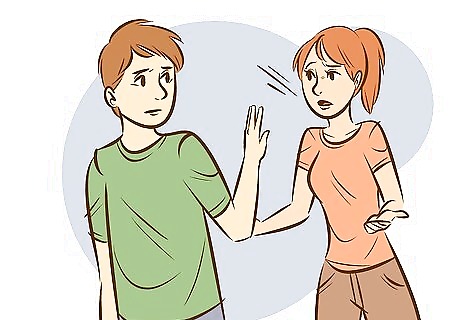
Notice lack of commitments. This doesn’t mean that if he hasn’t proposed, he’s mad at you. Simply taken, if he can’t commit to a date night or party in the future, he could be angry. If he’s angry at the moment, he won’t want to commit to something in the future with you.
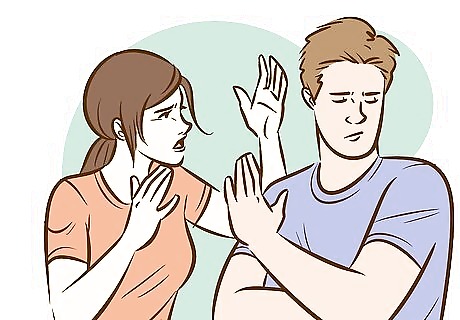
Study his body language. Anger won’t always manifest itself as aggression and violence. Although these are clear signs of anger, his body language won’t always be this straight forward. Crossing his arms is a sign that he has put up his defensive shield and is blocking you out. The extent of arm crossing indicates how firmly closed he is. An extreme version which may indicate additional hostility is a tight close with hands formed as fists. If legs are crossed, it adds to this signal. Note that not all crossed arms are defensive. Often, crossed arms are used when the person is cold in temperature. So don’t take only this body language change to deduce that your guy is mad at you.
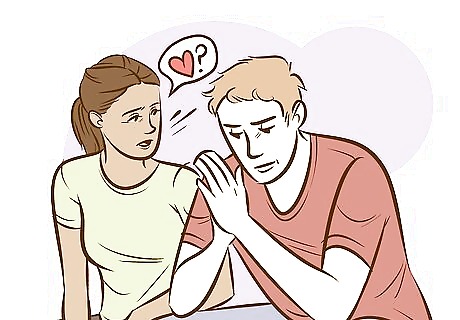
Provoke responses. Using positive behavior should result in a positive reaction. Doing something nice and receiving a cold response is an indicator of an issue. Do something nice for him, like making him a snack or giving him a gift, and make a note of how he responds.
Confronting Him Directly
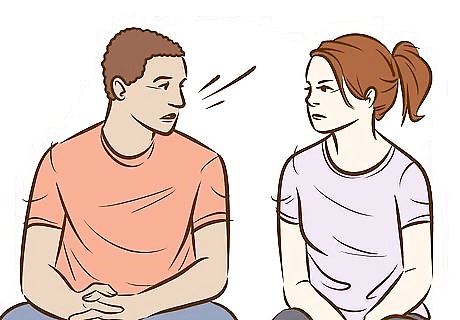
Choose a spot to talk. Finding a safe, quiet space is good for both you and him. It will make both of you feel more comfortable and open than if you were in front of other people. If you want to have friends there to help you feel more comfortable, make sure you don’t make him feel attacked. Don’t gang up on him, or he is likely to shut you out. Talk to him directly, rather than over the phone. This will cause him to answer quickly and directly. If you discuss it with him over the phone, he has leverage and can respond at his leisure, promoting negative conflict management.

Rehearse an opening. Either with a close friend, a pet, or in the mirror, prepare the first few minutes of the conversation. This can be an awkward moment for your guy and if he feels attacked, misled, or ambushed, you’ll want to stay direct and emotionally neutral. This will help him feel more comfortable in opening up to you. ”I feel like you’ve been angry at me about something, and I’ve been thinking about what. Can we clear the air?” ”Lately, I feel like we haven’t been the same. I’ve noticed you shutting me out, are you angry about something?” ”Is something bothering you? You’ve been acting differently lately and I would love to help you.”

Be persistent. Do not escalate the emotional level of the conversation by showing inconsistent feelings. Stay positive and consistent to keep the conversation flowing. Remind him that you’re concerned about him and that you want to help him through any conflicts he might be feeling.
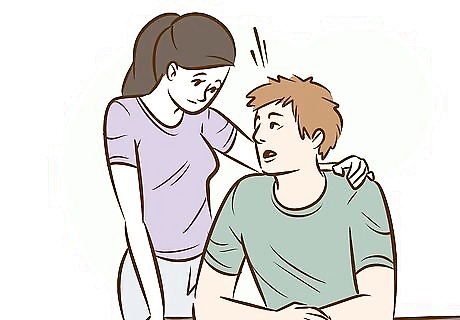
Stay engaged in the conversation. Show you care by using positive eye contact and by talking with your hands. Occasionally touching his hand or shoulder will encourage him to be more open. Avoid rolling your eyes at all costs! He will take this as annoyance on your part and can make him more upset with you.

Be prepared to empathize. If he is mad, it is important that you don’t get defensive. Be prepared to apologize for any mistakes you have made. You’ve put him on the spot and asked him to be open to sharing his anger with you, denying it or becoming aggressive may close this window in future conversations.















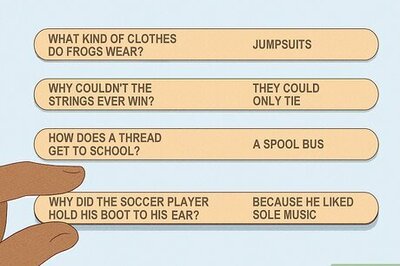

Comments
0 comment